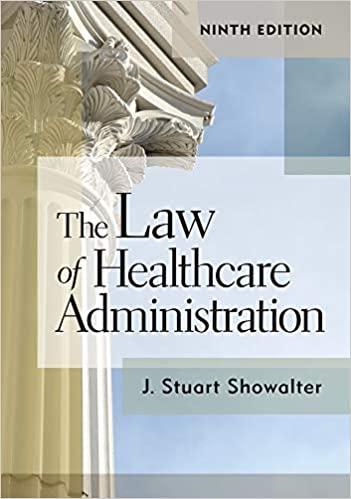Question
M. Fortunoff of Westbury Corp. v. Peerless Ins., 432 F.3d 127 (2nd Cir. 2005) The Distinction Continues M. Fortunoff of Westbury operates a chain of
M. Fortunoff of Westbury Corp. v. Peerless Ins., 432 F.3d 127 (2nd Cir. 2005)
The Distinction Continues
M. Fortunoff of Westbury operates a chain of department stores in New York and New Jersey. In March 1997, the company entered into a contract with Frederickson Motor Express, whereby the carrier agreed "as contract carrier and independent contractor ... to transfer shipments ... as authorized in Carrier's contract carrier permit ... issued by the ICC." The contract further provided: "Although carrier is authorized to operate ... as a common carrier, each and every shipment tendered to carrier by shipper ... shall be deemed to be a tender to carrier as a motor contract carrier...." Fortunoff's goods were damaged in transit, prompting it to make a claim against Frederickson. When the carrier went out of business, Fortunoff asserted the same claim against the carrier's insurer, Peerless Insurance Co., for $13,249.42 under the BMC-32 indorsement (the mandatory attachment to all common carrier insurance policies), which was part of Frederickson's insurance policy. From a judgment for Fortunoff, on the ground that the ICCTA mandated the extension of BMC-32 indorsements to all motor carriers, Peerless appealed.
JUDICIAL OPINION
CARD AM ONE, C. J.... [The] question is whether 49 U.S.C. 13906(a)(3) (2000) (amended 2005), enacted as part of the Interstate Commerce Commission Termination Act of 1995 (ICCTA or Termination Act), to replace the Motor Carrier Act's insurance provisions, allowed the Federal Motor Carrier Safety Administration (agency or FMCSA)the successor agency to the Interstate Commerce Commission (ICC) in this area of regulationto continue to distinguish between types of motor carriage when requiring cargo liability insurance....
Although Congress' aim was to eliminate the separate registration requirements for common and contract carriers, we do not believe that fact is dispositive in this case. Rather, what is most important is the method by which Congress saw fit to implement the Termination Act. With respect to insurance, Congress left it to the Secretary of Transportation's discretion to require cargo liability insurance. As we have stated, 13906(a)(3) replaced former 10927(a)(3) and gave the Secretary discretion over whether "a registered motor carrier," including carriers once classified as common or contract, must insure cargo....
... Congress' creation of one type of motor carrier did not also create only one type of carriage. Indeed, common carriage services, that is, those services offered to the general public at fixed rates without negotiated bilateral contracts, continue to be different from contract carriage services, which are those services performed on an ongoing basis for a shipper pursuant to a contract individually negotiated at arm's length. This fundamental distinction remains explicit in the terms of the Termination Act. See 49 U.S.C. 14101 (2000) (requiring motor carriers to perform common carrier services and permitting them to perform contract carrier services).
... [R]equiring cargo liability insurance for common carriage but not contract carriage is not an arbitrary distinction. Instead, it makes economic sense because of the different types of services performed, and the customers served, by common carriage. Although the licensing distinction between common and contract carriers was abolished by the ICCTA, such occurred in large part because most carriers had a common carrier certificate and a contract carrier permit and provided both types of services anyway. But the functional distinction between the two types of carriage survives, and is still highly relevant to deciding which motor carriers must have cargo liability insurance....
In sum, we hold that the FMCSA's discretionary decision to require motor carriers to supply default cargo liability insurance only when performing common carriage services is consistent with the terms of the ICCTA, and the agency's decision is entitled to respect. As a consequence of this ruling we must reverse the district court's judgment in favor of plaintiff Fortunoff....
Reversed and remanded.
analyze the case please
Step by Step Solution
There are 3 Steps involved in it
Step: 1

Get Instant Access to Expert-Tailored Solutions
See step-by-step solutions with expert insights and AI powered tools for academic success
Step: 2

Step: 3

Ace Your Homework with AI
Get the answers you need in no time with our AI-driven, step-by-step assistance
Get Started


